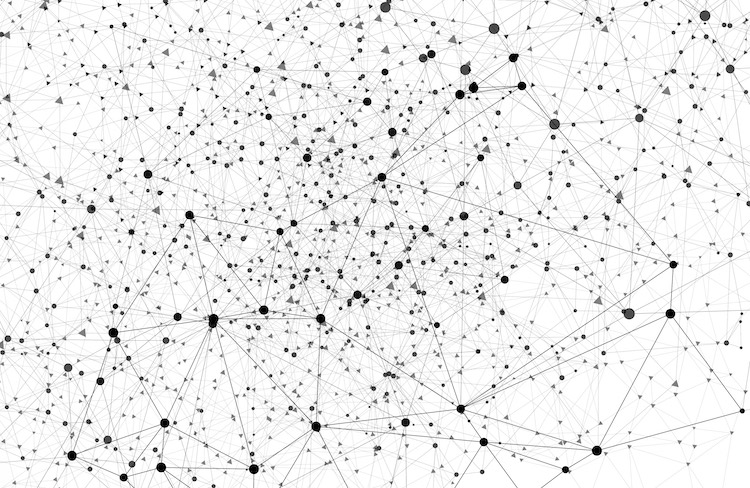As a physio, I’ve always been drawn to lung disease, or perhaps it would be more accurate to say I’m drawn to people who are suffering with lung diseases. But then that’s not exactly right either, because I’m really fascinated by how the lungs work (did you know that the diaphragm is the only skeletal muscle essential for life?); but also how anxiety, depression and stress manifests in people’s breathing; how machines can take over breathing and keep you alive; and how people have to come to terms with chronic lung disease in a different way to chronic arthritis (the latter is unlikely to be the reason for a slow, sometimes agonising death). So to say that “I’ve been drawn to lung disease” seems a bit superficial.
But even that’s not enough, because I’m also a keen gardener and know that plants breathe, and supply the oxygen so that we survive. I come from a long line of coal-mining families in the English Midlands and know what coal dust, air pollution, and poverty can do to your lungs. And I live in New Zealand, where Māori beliefs about breath (Hā, in Māori) are central to ideas about health and the environment. So I actually find it quite hard to define what it means when I think of myself as a ‘respiratory’ physiotherapist, and I’m sure its the same whatever sub-discipline you work in.
One of the challenges we always face in trying to think about an ‘otherwise physiotherapy’ is how to bring about change without being reductive, in other words, how do you stop yourself moving from one restrictive definition of physiotherapy to another? I know this from many years of experience and I’ve lived with this challenge for a long time.
I was trained to think like a biomedical clinician. I learned that disease was caused by pathology that resided in the body, and that only the objective, value-neutral investigation of facts carried value. But biomedicine didn’t bring me closer to the people I worked with. For that I needed the subjective, relational richness of qualitative research. But that didn’t acknowledge the biological body, and made a poor fist of analysing the power, discrimination, and prejudice inherent in the healthcare system and society at large. So where could I turn to find a new way to think about physiotherapy?
I wanted a kind of physiotherapy that didn’t treat the natural world as something ‘over there’ and I didn’t have much faith any more in the power of direct action. But I did want to do something.
And then a few years ago, a friend of mine sent me an article on New Materialism, a new philosophy that sits apart from the quantitative:qualitative binary. It rejects the idea that humans can exploit the world for our advantage. And it promotes a ‘flat ontology’ in which all things – people, animals, plants and objects – are held to have equal interest and value.
I read a lot of New Materialism and have seen it become the philosophy de jour in healthcare. But there was a problem. Much of it seemed to centre back on people – on the kinds of oppression faced by people of colour, women, the rainbow community, disabled people, etc. It seemed that New Materialism was becoming a proxy for the kinds of critical theory that activists had been engaging in since the 1960s, and it was still anthropocentric (human-centred). And if anthropocentrism is the thing that lies at the heart of climate change, social injustice and oppression, then NM risked only being new wine in old bottles.
I wanted something different.
It was then that I came across OOO, or Object Oriented Ontology. This is an approach pioneered by American theorist Graham Harman, and it might just hold some answers to how I can think about being a different kind of respiratory physio.
Harman’s ideas, his problems with New Materialism, and the urgent need for people in healthcare to think differently became the theme for a keynote lecture I gave at the In Sickness and In Health conference in Sydney in 2018. This was then turned into an article, which will go into print early next year. I’ve attached a pre-print proof of the article here though if you’d like to read more.
Basically, I’m trying to find a way to be a physiotherapist and not restrict myself to the body, the mind, or the lived experience of the patient I’m treating, and to embrace a much bigger ecology of physiotherapy: something that allows me to think about oxygen metabolism and plants, non-invasive ventilators and air conditioning units, laminar air flow and atmospheric pollution, the fear of dying and indigenous concepts of being, …
To do that I need a radically different way to think. OOO really does offer some ways forward, and I’ll be doing a lot more work on it in the months and years to come.
Some further reading
DeLanda, M., & Harman, G. (2017). The Rise of Realism. London, UK: John Wiley & Sons.
Harman, G. (2016). Immaterialism. Cambridge, UK: Polity Press.
Morton, T. (2017). Humankind: Solidarity with nonhuman people. London, UK: Verso.
Prof David Nicholls (PhD)
David is a Professor at AUT University, Auckland, New Zealand. He is a physiotherapist, lecturer, researcher and writer with a passion for critical thinking in and around the physical therapies. David is the founder of the Critical Physiotherapy Network, an organisation that promotes the use of cultural studies, education, history, philosophy, sociology, and a range of other disciplines in the study of the profession’s past, present and future. He has published extensively and presented his work all around the world.
Twitter: @DaveNicholls3


What a wonderful read. It resonates. You trigger my curiosity.
What a talent to be able to express your thoughts and put them to paper in such an easy to read manner.